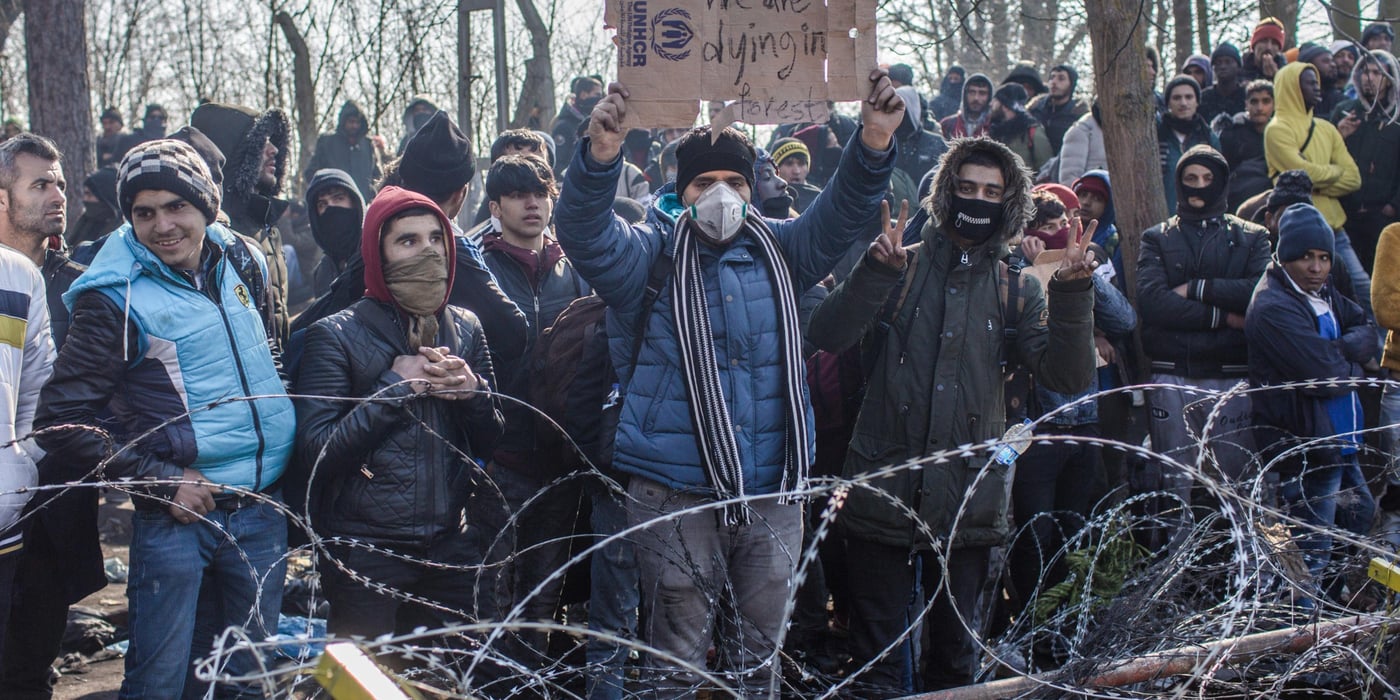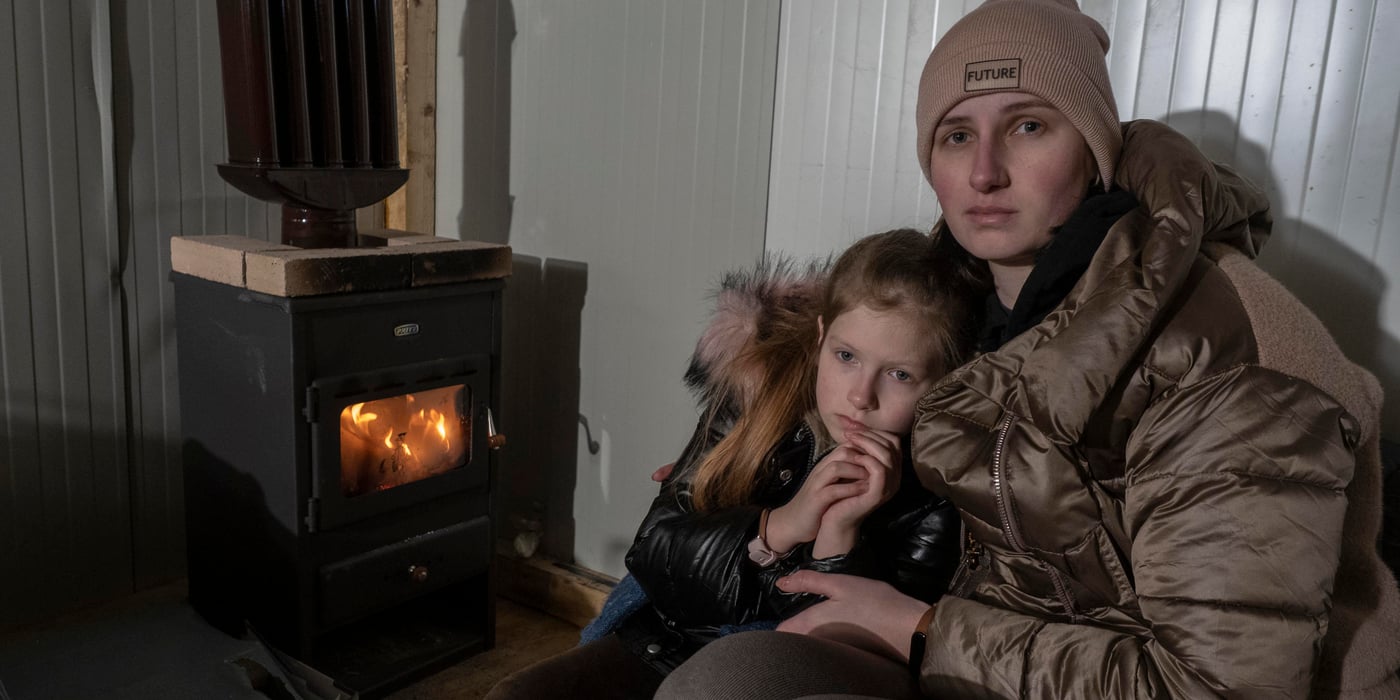
Why is this happening now?
The announcement from President Erdogan came after 33 Turkish soldiers died in an airstrike in Idlib, Syria. Turkey, which is already home to the world’s largest refugee population, according to the UN refugee agency (UNHCR), is expecting a new influx of refugees from north-western Syria.
Six things you should know about the humanitarian crisis in Idlib
Is Turkey allowed to open its borders to Greece and Bulgaria for refugees?
In the controversial EU-Turkey deal, created in 2016, Turkey agreed to stop asylum seekers from entering the rest of Europe. However, there are no international laws against this.
Has there been an increase in the number of people arriving in Greece?
Yes, at the beginning of March we saw an increase in the number of people arriving on Greek islands by boat. Thousands of people trying to cross by land have mostly been pushed back.
It is hard to know whether this will continue. Turkey has repeatedly threatened to abandon the EU-Turkey agreement, which required them to stop asylum seekers from crossing the borders into Greece, but so far, the numbers have stayed well below what we witnessed in 2015 and 2016. Still, we should remember that a substantial number of asylum seekers have continued to arrive in Greece over the last few years. It is estimated that around 75,000 arrived last year alone.
Greece announced that it is shutting down its border crossing with Turkey to prevent refugees from entering the country, as hundreds of people are walking towards the border. Is this acceptable?
It is unacceptable for Greece to shut its borders to people seeking international protection. But we should see this in light of Europe’s lack of responsibility sharing. This is not just a question of providing Greece with more funding, there is a need for other European countries to help by relocating some of the asylum seekers.
How is the situation in Greece currently?
The capacity in Greece is already stretched beyond its limits and people are living in precarious conditions. Moria camp, on the island of Lesvos, which was built for 3,000 people, is currently housing 20,000. The increase in arrivals is putting more pressure on the limited reception facilities. There is also increased tension on the island. Many humanitarian organisations are now evacuating Lesvos, due to attacks on aid workers by those who are against asylum seekers arriving in Europe. Euronews has also reported that some people have tried to stop boats containing refugees and migrants from arriving.
If the islands are overstretched, why doesn’t Greece speed up asylum procedures to make sure people can get off the islands quicker?
An asylum reform took place in October 2019 that looked into speeding up the asylum procedures and introduced new procedures allowing certain groups of asylum seekers to be examined as priority.
The law was put into practice at the start of the year but there has been confusion about how to interpret it, who it applies to and which procedures to follow.
Other obstacles that delay the asylum procedures are mass arrivals where the majority are considered vulnerable, the overstretched capacity of asylum and reception services, and miscoordination and miscommunication between different services and actors.
Is Greece capable of handling this crisis?
Or rather, is the EU capable of handling this crisis? Greek authorities are not operating by themselves but are bound by a series of complex and multi-layered laws, guidelines and agreements within the EU and between the EU and countries outside its borders.
Greece has played the main role in handling the crisis, but factors such as political and financial instability, an inflexible national administrative system, slow redistribution of people between EU countries, and unprecedented regional developments (for example, the sudden increase of arrivals in summer 2019) have put additional strain on the country.
As the EU is challenged to build a common strategy and is planning for a one-voice comprehensive approach to mixed migration flows, Greece - with much less capacity and expertise - is left to solve a puzzle for advanced players, on its own.
How is the Norwegian Refugee Council (NRC) engaged in Greece?
NRC is working in Greece through NORCAP, our global provider of expertise to the humanitarian, development and peacebuilding sectors. NORCAP has been present in Greece since the start of the refugee influx in August 2015 and has supported both the humanitarian UN response and Greek authorities.
Currently NORCAP has 14 experts deployed to Greek authorities, to the Reception and Identification Service and to the National Centre for Social Solidarity (EKKA). EKKA is the authority in charge of the national referral mechanism for survivors of human trafficking.
NORCAP has contributed to making sure reception processes and conditions are in line with international standards, with improved protection, especially for vulnerable groups such as unaccompanied minors and people with disabilities. Our experts have also helped improve safety and security in the camps, and continue to provide ministries with legal expertise on implementing European, national and international legal provisions.


